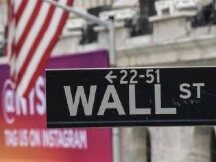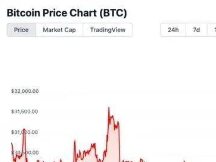El Salvador will create the world's first “Bitcoin city”. Why choose “All-in” Bitcoin?
On November 21, Salvadoran President Nayves Bukele announced at a Bitcoin conference that he planned to announce a Bitcoin deal to fund the development of the world's first “Bitcoin City”. “Bitcoin City” will support bitcoin mining using volcanic geothermal energy for energy, and “Bitcoin City” does not restrict taxes except VAT. The news once again aroused the interest of various media, countries and organizations.

El Salvador announces "Bitcoin City" project at Bitcoin conference
El Salvador has bought bitcoin in bulk by launching its own digital wallet with bitcoin as the national currency since this year. This small Central American country has become the "Bitcoin Heaven" for all to see. What about "Bitcoin City" that El Salvador will create at this time? How did El Salvador start to be “crazy” about Bitcoin? Where else in the world of “all-in” Bitcoin? How does Bitcoin affect a country like El Salvador? With these questions, we will identify them individually.
Create the world's first "Bitcoin City"
Under the leadership of Salvadoran President Nayb Bukele, the “Bitcoin City” will be formed in the eastern part of La Union (El Salvador's eastern border province) in La Union, the city of La Union. It is located at the foot of the Conchagua volcano between (La Union) and Concha Conchagua. Consider choosing this site because Bitcoin "mining" uses a lot of energy and "Bitcoin City" uses electricity to generate electricity and does not use any emissions. Bukele looks like "Bitcoin City" for the city created by Alexander the Great of the Kingdom of Macedonia and plans to make this new city a circle to represent the image of Bitcoin. Urban development includes business areas, residences, airports and ports, as well as a central plaza displaying the Bitcoin symbol from the air.

"Bitcoin City" is exempt from all other taxes and only collects VAT. Half of the VAT proceeds are used to reimburse Bitcoin contracts related to urban development, and half is used for urban development and surveillance such as garbage collection and other services. The government of Salvador will regularly provide land, infrastructure and services to attract investors to the “Bitcoin City”. According to Bukele's estimates, the city's new public infrastructure is worth around 300,000 bitcoins, or roughly $ 17.1 billion with a current value of $ 57,038.
To fund this, El Salvador will announce the world's first state-owned Bitcoin "volcanic bond" in 2022, and blockchain company Blockstream will support it. According to Blockstream CEO Samson Mow, "Volcanic Bonds" will begin to advertise $ 1 billion 10-year backed bonds and 6.5% coupons. Half of the contract's income was invested directly in Bitcoin and the other half was used to build "Bitcoin City" and I Bitcoin. After a five-year shutdown, El Salvador will sell some of the bitcoin used to pay for its contract to give investors "extra coupons."
El Salvador turns Bitcoin into paradise
El Salvador's "Bitcoin City" Project is actually a large-scale Bitcoin project launched by the world's first national organization, and its influence and importance is extraordinary. But the truth is, this isn't the first time El Salvador has promoted and invested in Bitcoin so much.
El Salvador was first subject to due diligence on June 9 this year, when the Salvadoran Parliament approved the president's “El Salvador Bitcoin Policy” to “Bitcoin as Legal,” which came into effect. effective 90 days later. On September 7 of this year, Bitcoin officially became the fiat currency of El Salvador, using the US dollar. Since then, El Salvador has become the first country in the world to use Bitcoin as a lucrative business. Salvador's government hopes to use the law to stimulate the economy, promote economic development and improve the current situation.
And the Bitcoin bill had huge impact and volatility in El Salvador, and since then El Salvador has started the big Bitcoin “layout”.
First, in response to the bill, on the very day it went into effect, grocery stores such as McDonald's, Starbucks, and Pizza Hut immediately announced that they would accept Bitcoin payment in El Salvador. Many local businesses in El Salvador have also started accepting Bitcoin payments. Since then, El Salvador has established more than 50 Bitcoin payment training centers nationwide, and more than 7,000 traders have been trained in Bitcoin trading.

Second, to facilitate payments in the Bitcoin market and exchange for US dollars, the Salvadoran government agreed to establish a $ 150 million Bitcoin trust, including free and paid hardware and software for the public. Apart from the Chibo digital wallet, each citizen who uses the wallet will receive $ 30 in bitcoins, equipped with up to 200 Chivo ATMs that can exchange bitcoins for US dollars, make deposits and withdrawals at 50 banks, etc. Users do not have to bear all the exchanges and exchange rates, all by the state.

In addition to using Bitcoin as a legitimate value, El Salvador has invested directly in Bitcoin. El Salvador's government has rushed to buy bitcoin on multiple occasions since September this year, purchasing a total of 1,100 bitcoins (currently worth $ 62.1 million), making it the third largest countries in the world to hold bitcoins.
One of El Salvador's “all-inclusive” Bitcoin movements made El Salvador almost a “Bitcoin Heaven” around the world.
Why choose “All-in” Bitcoin?
So why did El Salvador choose Bitcoin, a very valuable asset, based on its benefits and plans to build a “Bitcoin” city with a lot of money? This is the story of El Salvador.
El Salvador is a coastal country in northern Central America and the most populous country in Central America. The Korean home-based business is dominated by agriculture, has a weak base, and falls into the “low and middle income” category. In July 2021, El Salvador had an inflation rate of -0.37%, an unemployment rate of 6.98% and a GDP of -7.9%.

Location of El Salvador
According to GDP data released by the Central Bank of El Salvador on the 31st, due to the impact of the spread, El Salvador's registered GDP in 2020 is $ 24.639 billion, down 8.4% compared to the previous year, with nominal annual GDP. per inhabitant. only $ 3642.
Since El Salvador does not declare itself financially independent and has always been in US dollars, only a third of El Salvador has a bank account, cross-border remittances and remittances of up to 24% of GDP per year. . . According to data from the Central Bank of El Salvador, the total repatriation of refugees will reach $ 5.9 billion by 2020 (over 2 million people living abroad in El Salvador). Before Bitcoin, the people of El Salvador only wanted to send money around the world through money transfer companies such as Western Union, a process that is not only difficult to navigate, but also requires a high payment (until 'at 10%). Since then, El Salvador has been able to trade overseas via Bitcoin remittances with the support of the Bitcoin Lightning network launched by Strike, which not only cuts out middlemen and high costs, but also cuts down on transfer time, which is convenient for the public. . take you It also cuts costs in El Salvador.
Additionally, Bitcoin had already been the subject of an illegal "trial" in El Zonte in early 2018. At the same time, some supporters of Bitcoin in the United States began to drive it to the coastal town of El Zonte, in the United States. south of El Salvador. Beach "These cryptocurrency enthusiasts give every household in the city $ 50 worth of bitcoin, encourage local businesses to use bitcoin, and support the Lightning Network to provide easy money transfer services to residents of El Salvador. trading, recover BTC assets, convert to US dollars or trade international currencies.
Due to the fast and affordable project and the rapid transformation of the Bitcoin Lightning network, Bitcoin has drawn the favor of the President of El Salvador. As a result, Bitcoin has grown from a niche experience in El Salvador to where it is today the most competitive legal entity in the country.
Regarding the impact, many Bitcoin-like ideas such as "Bitcoin City" were applied after Bitcoin was legalized in El Salvador. These actions are not only significant advancements in the crypto community, they are also important for the widespread use of Bitcoin. It has inspired and demonstrated many small countries, and many countries in South America, especially El Salvador, want to try it. According to media reports, when the bill recognizing cryptocurrencies as Bitcoin was introduced in September 2021 by the Central Bank of Cuba, cryptocurrencies became the law of conduct for businesses in Cuba.
However, despite what El Salvador calls “Bitcoin Paradise,” using Bitcoin as an asset does not make El Salvador a true Bitcoin nation. The main role and responsibilities of the bank. Additionally, due to the volatility and deregulation characteristics of Bitcoin, international financial institutions such as the World Bank and the International Monetary Fund (IMF) have expressed concern or disapproval of the use of Bitcoin as legal tender. .

Scan QR code with WeChat


